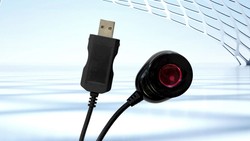There has been a growing resistance to meters in regions worldwide. Many customers believe that their utility bills have surged following the installation of these devices. The main source of discontent stems from the shift from electromechanical meters to new smart meters. Let's take a look why this perception persists and how utility companies can tackle these issues through on site accuracy tests using our RS350.
Differentiating Between Old and New Meter Technologies
Electromechanical (Ferraris) meters which have been in service for years often experience wear and tear over time. One common problem is the rotating disk inside the meter coming into contact with the braking magnet. This contact leads to a scratching sound and causes the meter to slow down, resulting in an underestimation of energy consumption. In some instances inaccuracies can reach, up to 10% or more.
On the hand, new smart meters are engineered for precision, usually operating within +/ 1% of actual energy usage. They are finely calibrated to meet accuracy criteria, ensuring that customers are billed correctly for their energy usage.
The shift, from using an electromechanical meter to a precise smart meter may give the impression that utilities are charging too much.

Why Accurate Metering Matters
Having meters is essential for both consumers and utilities. For consumers, fair billing helps build trust and satisfaction. Utilities rely on data for managing the grid planning and promoting energy efficiency. The move to meters is important for reaching these objectives. It needs to be handled carefully to address consumer worries.
Addressing Consumer Worries
To ease concerns about overcharging, utilities can take steps;
- Open Communication
Educate consumers on the differences between old and new meters and how wear and tear affects accuracy in older models. - On Site Accuracy Tests
Conduct on site accuracy tests using certified testers like our RS350. These tests can demonstrate the precision of the meters compared to the older electromechanical ones. - Customer Support
Provide strong customer support to address any questions or worries consumers have about their new meters and billing.
Takeaway
Transitioning from meters to smart meters is an important move for ensuring accurate and equitable billing practices. While concerns regarding overcharges are valid, they can be alleviated through communication and on site accuracy assessments conducted by certified technicians like those using our on-site test devices Introducing Our High-Quality Meter Test Equipment for Precise Measurements. By following these steps, utility providers can maintain consumer confidence while upholding the reliability of their metering infrastructure.
Introducing Our High-Quality Meter Test Equipment for Precise Measurements. By following these steps, utility providers can maintain consumer confidence while upholding the reliability of their metering infrastructure.
Should you have any questions or require details about meters and, on site accuracy testing, please feel free to contact us Contact Us. We are here to support you. Eagerly await your feedback.
Contact Us. We are here to support you. Eagerly await your feedback.
Until then, keep shining bright like a solar panel on a sunny day!







All comments are moderated before being published. Inappropriate or off-topic comments may not be approved.